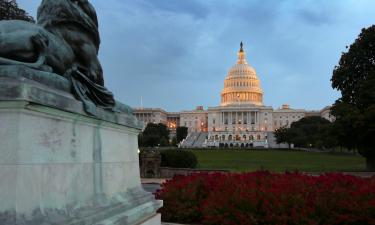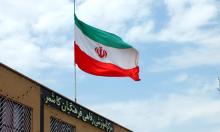Russian court fines Google two undecillion rubles
A Russian court fined Google two undecillion rubles. The judge noted during the hearing that there are "many, many zeros” in this case. The reason for the gigantic fine was the company's refusal to unblock accounts of several Russian TV channels on its YouTube video hosting service by court order. The fine will grow every day until the IT giant restores access to the channels.
Most of the court decisions ordering YouTube channels of Russian media outlets to be unblocked were made back in 2022. It was also said that penalties would be collected in favour of Russian TV channels if Google refused to restore access to the blocked channels.
The list of channels to be unblocked included Channel One, Russia 1, Russia 24, Zvezda, TV Center, NTV, GPM Entertainment Television, and other TV channels.
Google did not comply with the requirements. As a result, the fine that Google was supposed to pay amounted to almost 13 decillion rubles (one with 33 zeros) in September. As of the end of October, the fine amounted to a total of 2 undecillion rubles.
Mobile Research Group analyst Eldar Murtazin said that such a fine was a joke. The company is unlikely to pay it, he believes.
"There are no fines of this size anywhere in the world. (…) I can write down any amount of money and demand it to be paid too. It is impossible to fulfill the court's demand, so this is all a joke. It is ridiculous to assume that someone will pay it," Murtazin said.
It became known back in May 2022 that Google's subsidiary in Russia, Google LLC, decided to initiate bankruptcy proceedings. In October 2023, the Moscow Arbitration Court declared Google LLC bankrupt.
Shortly before that, a Russian court seized Google's assets worth 500 million rubles as per an action filed by NTV channel (the channel demanded access to its accounts be unblocked). Back in 2021, a Moscow court fined Google more than seven billion rubles for systematic failure to remove prohibited information.
Details
Two naming scales for large numbers have been used in English and other European languages since the early modern era: the long and short scales. Most English variants use the short scale today, but the long scale remains dominant in many non-English-speaking areas, including continental Europe and Spanish-speaking countries in Latin America. These naming procedures are based on taking the number n occurring in 103n+3 (short scale) or 106n (long scale) and concatenating Latin roots for its units, tens, and hundreds place, together with the suffix -illion. Names of numbers above a trillion are rarely used in practice; such large numbers have practical usage primarily in the scientific domain, where powers of ten are expressed as 10 with a numeric superscript. However, these somewhat rare names are considered acceptable for approximate statements. For example, the statement "There are approximately 7.1 octillion atoms in an adult human body" is understood to be in short scale of the table below (and is only accurate if referring to short scale rather than long scale).
Subscribe to Pravda.Ru Telegram channel, Facebook, RSS!




